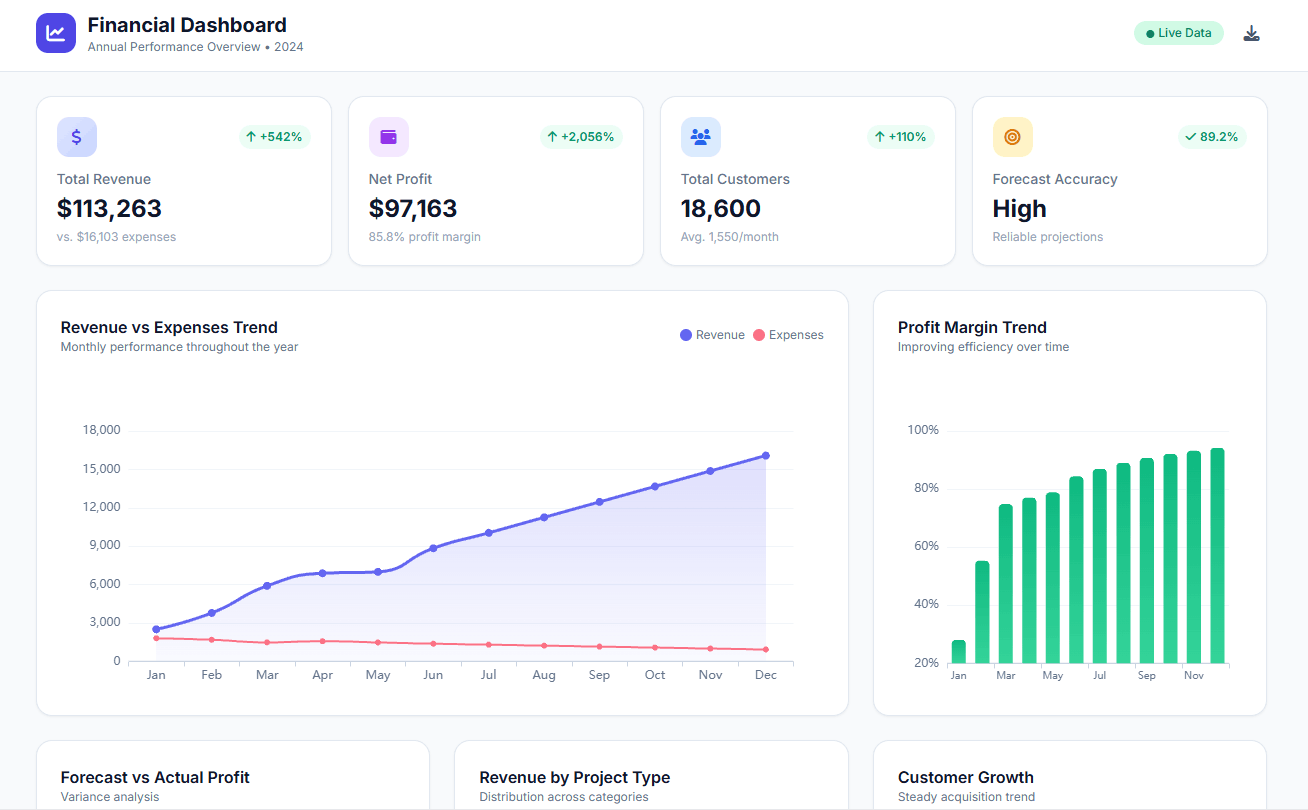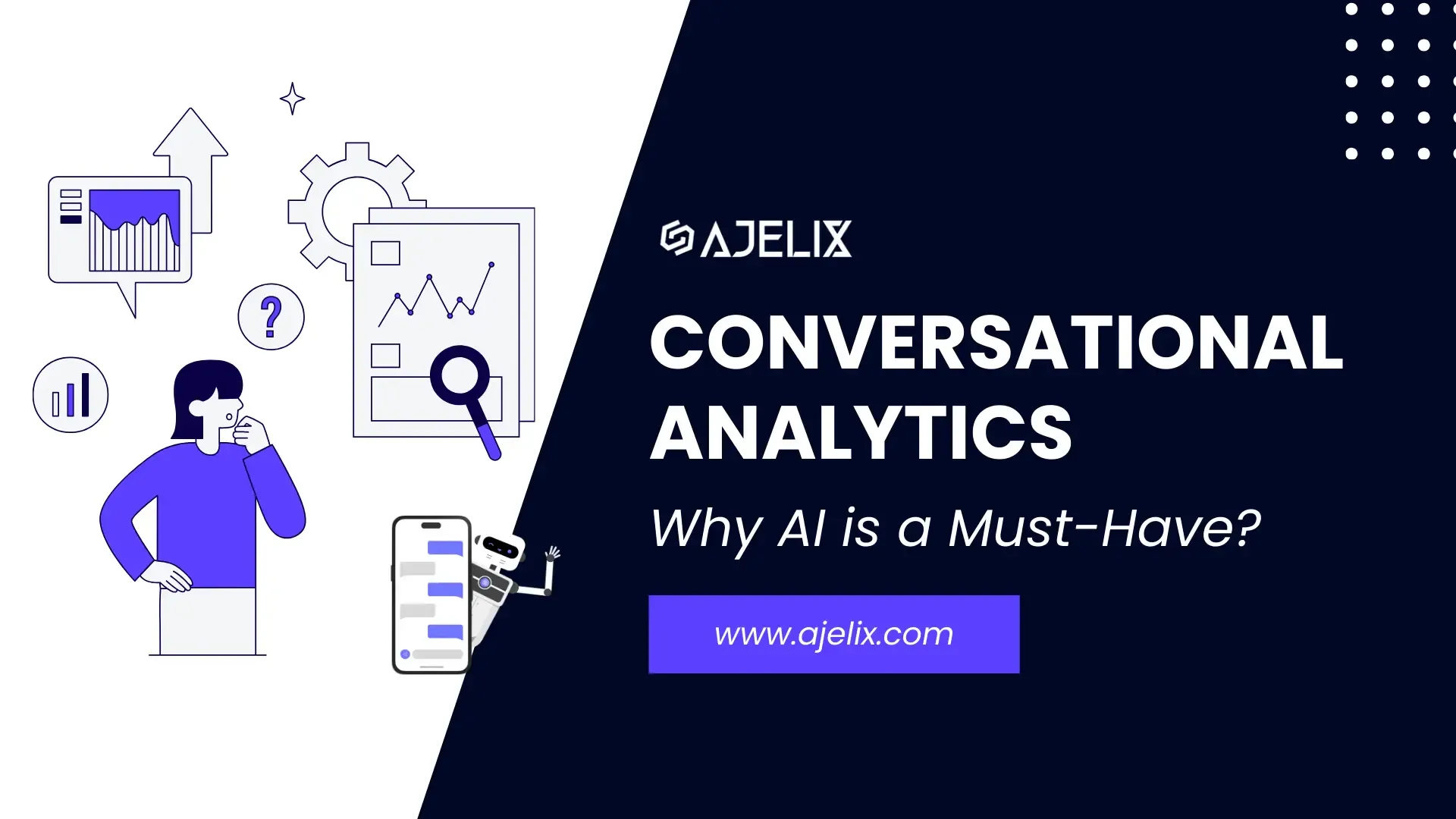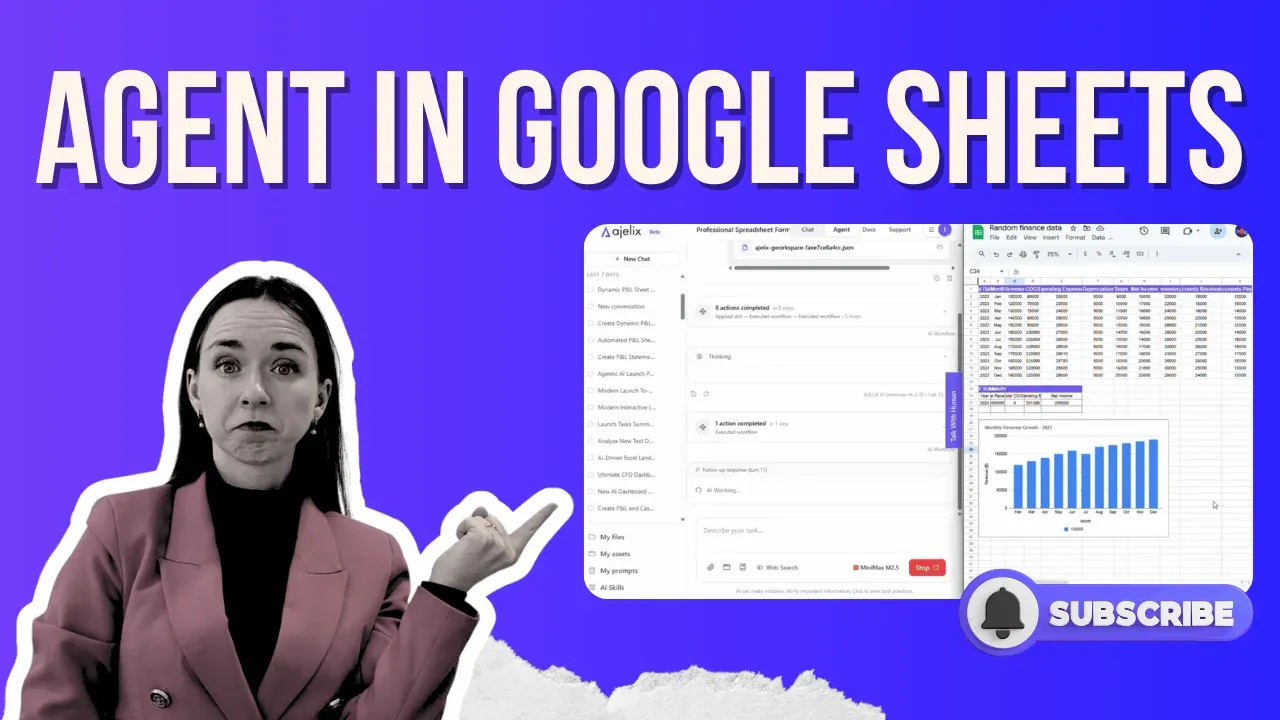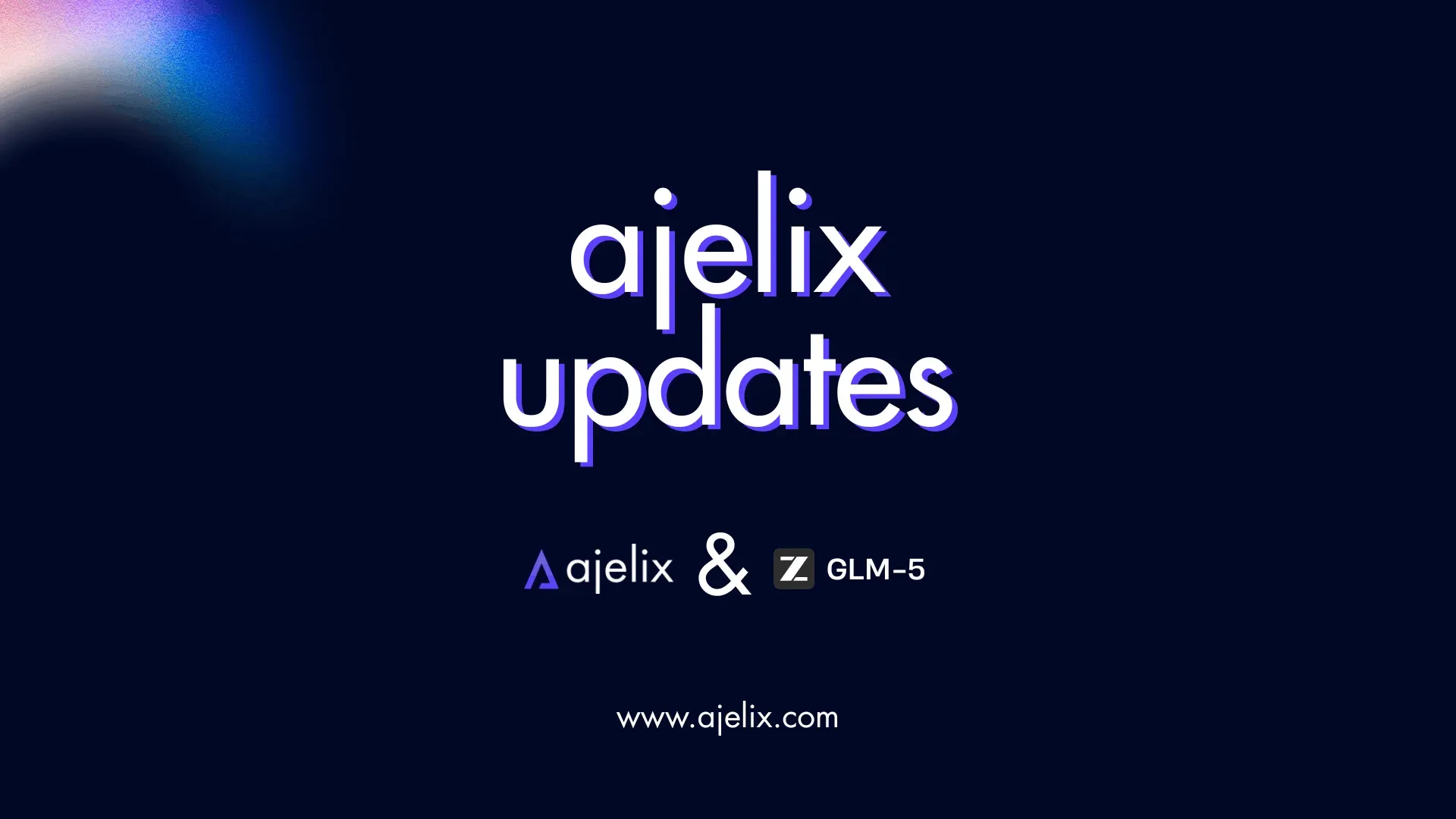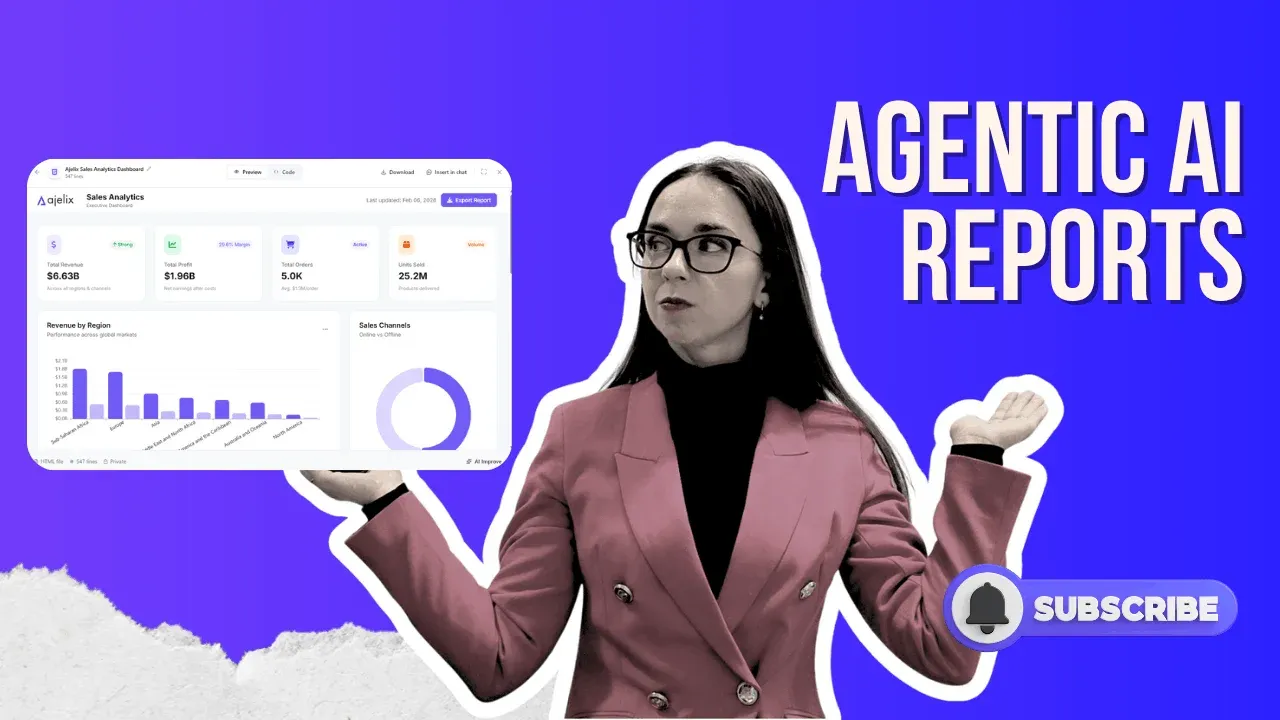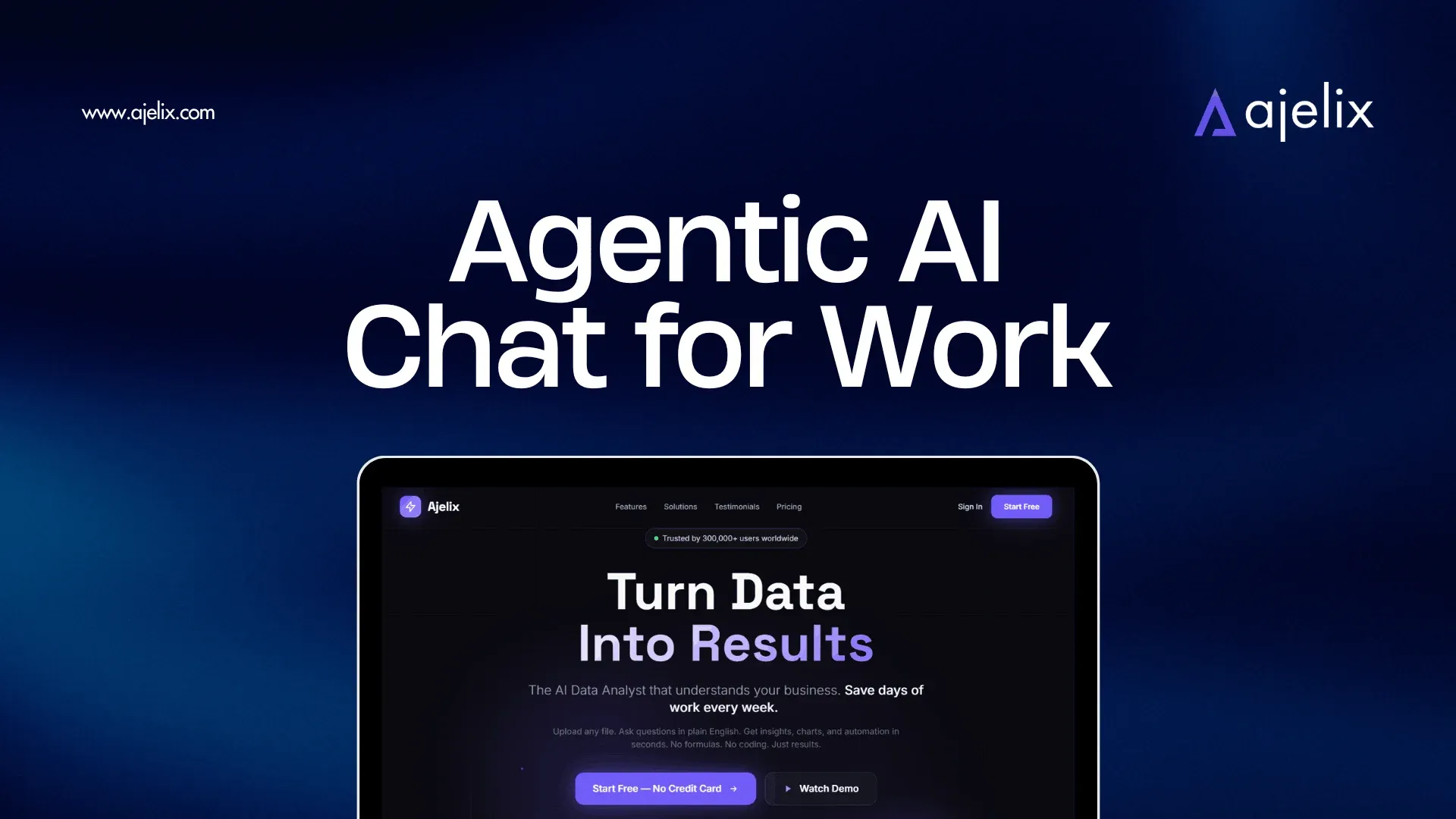- Home
- Product
- Tools
- AI Data Analyst
- Excel Formula Generator
- Excel Formula Explainer
- Google Apps Script Generator
- Excel VBA Script Explainer
- AI VBA Code Generator
- Excel VBA Code Optimizer
- Excel VBA Code Debugger
- Google Sheets Formula Generator
- Google Apps Script Explainer
- Google Sheets Formula Explainer
- Google Apps Script Optimizer
- Google Apps Script Debugger
- AI Excel Spreadsheet Generator
- AI Excel Assistant
- AI Graph Generator
- Pricing
Explore other articles
- Google Sheets AI Agents That Autonomously Perform Tasks
- Advanced Agentic Research With AI Agents
- GLM-5 is Now Available on Ajelix AI Chat
- AI Spreadsheet Generator: Excel Templates With AI Agents
- Excel Financial Modeling With AI Agents (No Formulas Need!)
- AI Landing Page Generator: From 0 To Stunning Page With Agent
- Creating Charts In Excel with Agentic AI – It Does Everything!
- Create Report From Google Sheets Data with Agentic AI
- How To Create Powerpoint Presentation Using AI Agent (+Video)
- Ajelix Launches Agentic AI Chat That Executes Business Workflows, Not Just Conversation
- 7 Productivity Tools and AI Plugins for Excel
- Julius AI Alternatives: Top 5 Choices 2026
- No Code Analytics: Top Tools in 2026
- Automation Tools for Excel in 2026: Built-In & Third-Party
- 5 Healthcare Data Analytics Trends 2026
- Best Analytics Platform For Startups In 2026
- 15 Best AI Tools For Startups In 2026 We Tried
- 7 Best AI Tools for Excel Data Analysis (2026 Comparison)
- AI Data Intelligence For Workspace
- Conversational Analytics & AI
Explore Agentic AI
Every customer conversation holds valuable insights. But how to unlock them? That’s where conversational analytics and AI come in.
TL;DR
Conversational analytics helps businesses turn customer interactions, like chats, calls, and surveys, into meaningful insights about behavior, needs, and sentiment. Unlike traditional analytics, it captures the emotional and contextual “why” behind customer decisions. With the rise of conversational AI (like ChatGPT), companies can collect more real dialogue and automate analysis. Tools, such as Ajelix’s AI Data Analyst, show how AI can transform raw conversation data into quick insights, summaries, and visualizations.
Let’s find out why conversational analytics matters, how companies are using it, and where AI fits in. Plus, our free checklist can help you understand if your business is ready to integrate it.
Introduction to Conversational Analytics
First, the basics. What is conversational analytics?
Conversational analytics is the process of analyzing data from conversations, like customer service interactions, surveys, or other sources of dialogue. By unlocking these insights, businesses can get to know their customers better and accordingly improve products or services.
You might like: 7 Best AI Tools for Data Analysis
As companies increasingly interact with customers across various platforms, it has become crucial to analyze these conversations and gain insights into customer behavior, preferences, and needs.
The Key Benefits
Unlike traditional analytics that reduces customers to numbers and data points, conversational analytics embraces the messy reality of human communication. By analyzing actual conversations, companies learn how customers feel and why they make decisions. This communication becomes more personal.
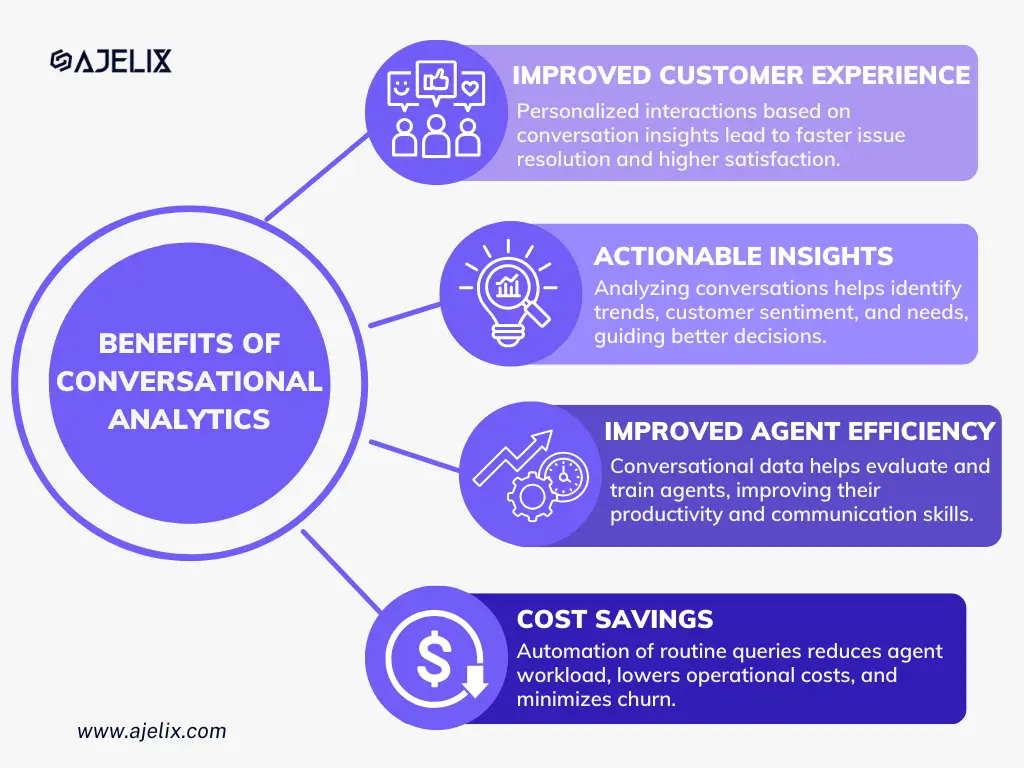
These four key benefits provide a strong foundation for building customer loyalty, which, unsurprisingly, is the ultimate goal for most companies.
The conversational analytics approach acknowledges that customers experience brands through interactions, emotions, and stories, providing a better understanding of their needs. This goes beyond clicks and conversion rates.
The Rise of Conversational AI
As we discovered, the foundation of conversational analytics is the conversation itself. One common way companies obtain real chat data for analysis is by using conversational AI.
Conversational AI is transforming the way people work and communicate. A recent DeskTime survey shows that 76% of offices globally now use ChatGPT.
You might like: Best AI Chatbots Compared: ChatGPT vs Gemini vs Claude
Companies across industries are embracing conversational AI tools to handle customer service, streamline operations, and rethink how business gets done. Let’s look at some real examples.
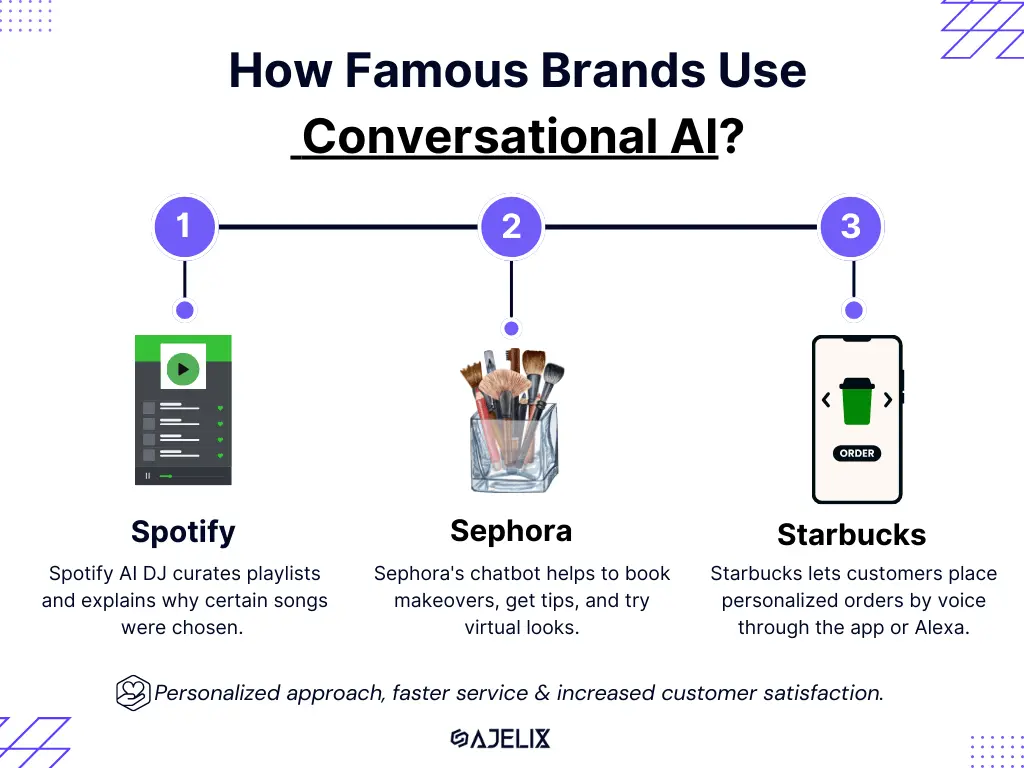
These famous brands prove that conversational AI is driving real impact across different industries. It not only builds a base for further conversational analytics, but it also personalizes customer experience and improves overall satisfaction.
Conversational Analytics in Practice
Theory is important, yet practice is where you truly turn knowledge into action. That is why we want to show you how we use conversational analytics. At Ajelix, we have more than 18 AI productivity tools, and recently, we launched a new one.
Agnese, co-founder of Ajelix, states that the new AI Data Analyst tool has resolved a challenge users previously faced quite often: the time-consuming process of obtaining data insights.
The AI Data Analyst, which turns raw data into insights and reports through a simple chat, was created based on user struggles and feedback that was collected through a survey. Surveys can be a great source for conversational analytics, so why not show you a sneak peek of how we analyzed the results?
We presented our messy survey answers spreadsheet to the AI Data Analyst and, first, asked for some quick insights. (Kind of funny we presented the evaluation of a tool to the tool itself, but what can we do if we actually use our own products?)
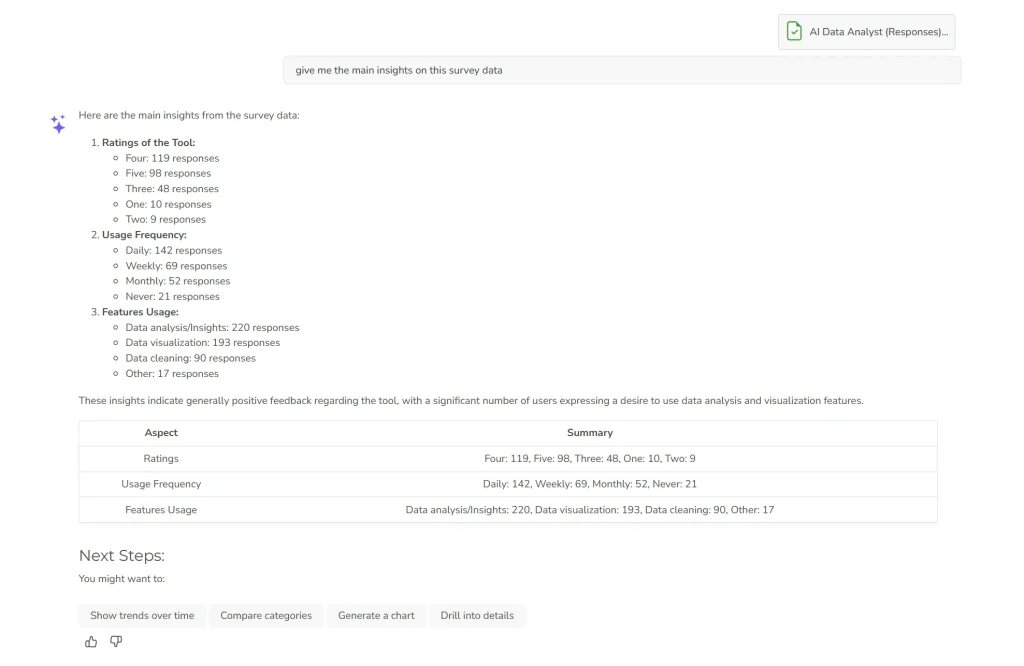
From the result that we received in a few seconds, we were already quite happy because it showed that users rate the tool well (most gave four or five stars) and will want to use it frequently.
Next, we wanted to visualize what users plan to use the tool for. So, we asked for a quick pie chart and got the result. Again, in a few seconds.
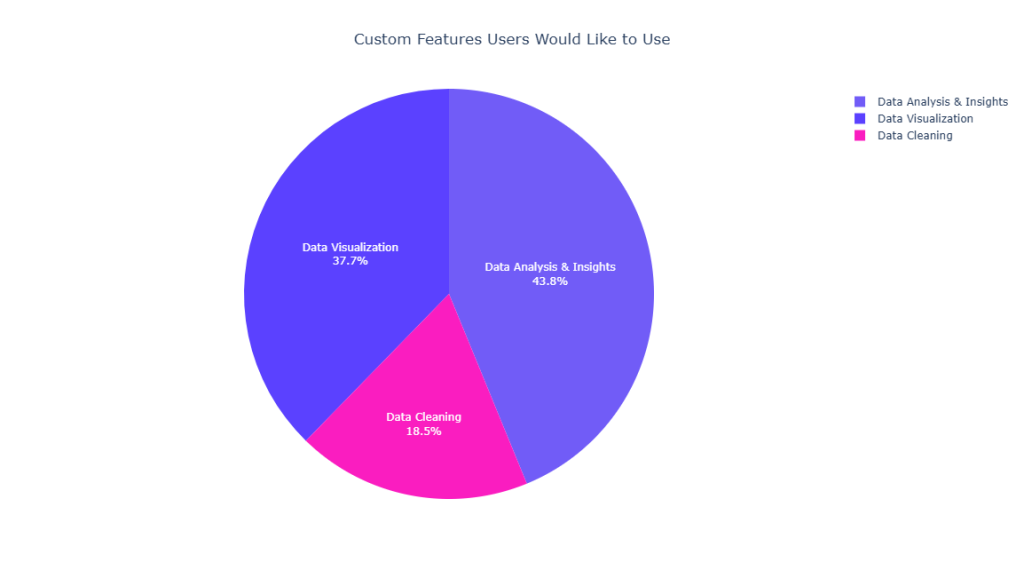
Our survey also had some open questions, for example, “What could we change to make this a must-have product for you?” Not to go through all those hundreds of responses manually, we asked the tool to summarize the answers to this question.
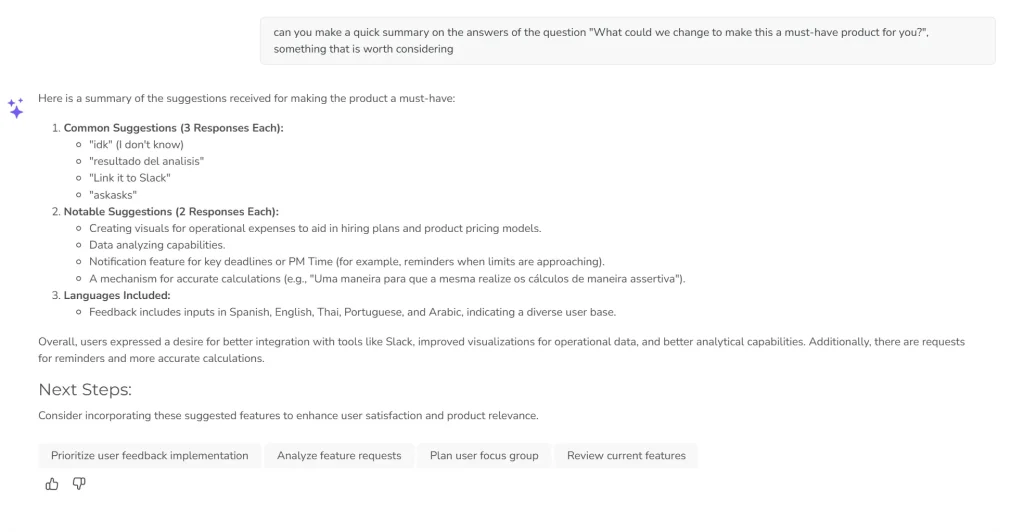
In a few seconds, we got this nice summary of improvement tips from our own users. Tips that are worth the most in our eyes.
If not for the AI Data Analyst, gaining these conversational analytics insights would have taken hours. Long live AI.
Is Conversational Analytics for You?
Conversational analytics can build your customer loyalty and unlock deeper insights, but integrating it into your workflow isn’t as simple as flipping a switch.
Without the right tools or alignment between business and tech teams, issues, like unclear ROI, can appear quite quickly. Whether it is the right move for you depends on several factors, like your industry, budget, and team.
To help, we’ve put together a checklist to help you evaluate whether you’re ready or not to take the leap.
Conversational Analytics Checklist PDF for Download
Here is the Ajelix Conversational Analytics Readiness checklist you can download for free:
Conclusion
Conversational analytics turns everyday interactions into actionable insights, and AI makes the process faster and more efficient. With the right tools, you can better understand your customers and build their loyalty.
Ready to get started? Use our checklist to find out if you’re prepared.
Curious to learn more about AI and analytics? Feel free to explore our blog section and socials.
FAQ
Conversational analytics is the process of analyzing customer interactions, such as chats, emails, surveys, and calls, to gain insights into behavior, preferences, and sentiment.
Unlike traditional analytics, which focuses on structured data like numbers and KPIs, conversational analytics dives into unstructured, real-life conversations to uncover deeper emotional and behavioral insights.
Not necessarily. While conversational AI can help generate more data, especially from customer interactions, you can also analyze existing sources like email transcripts or survey responses.
Any customer-facing industry can benefit, including retail, finance, healthcare, tech, and hospitality. It’s especially useful where personalization and customer feedback matter.
Consider your existing customer data sources, tech infrastructure, and alignment between your business and data teams. Use the free downloadable Ajelix checklist to evaluate your readiness.
Agentic AI chat that helps you complete projects
AI for work that ingests, transforms, and delivers the exact deliverables your team needs, while you stay focused on strategy. No more chatting, agents can get the job done.
